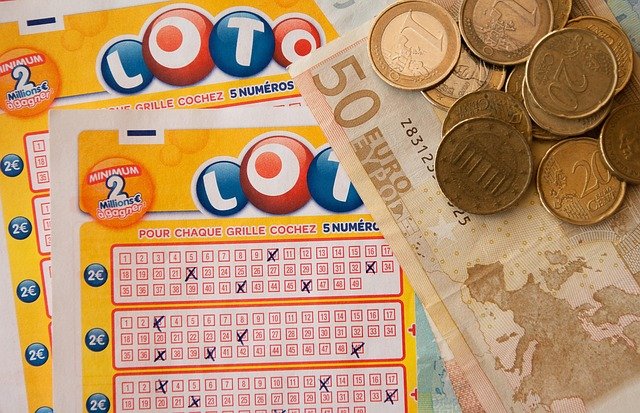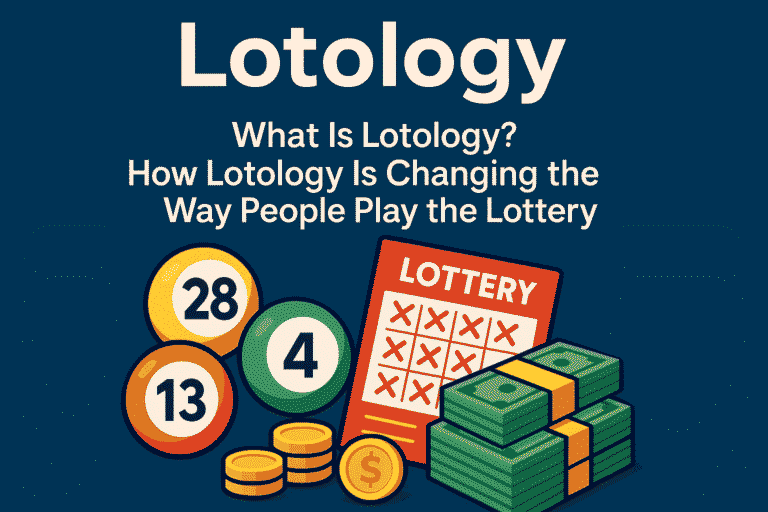For generations, the lottery has been viewed as a game of pure chance—a hopeful ticket to instant wealth with odds that rival being struck by lightning. But in recent years, a growing community of enthusiasts, data analysts, and cultural collectors have approached the lottery in a new way, turning randomness into a field of study known as lotology.
So, what exactly is lotology, and why is it gaining traction? Far from being a gimmick or superstition, lotology merges data science, behavioral psychology, and historical preservation to understand the lottery more deeply.
Whether you’re a casual player hoping to sharpen your odds or a collector fascinated by scratch-off card design, lotology offers a unique lens into the world of lotteries—changing not just how people play but how they think about the game altogether.
What Is Lotology? A Modern Discipline Born from Chance
Lotology is the study of lotteries—both from a mathematical and cultural perspective. The term blends “lottery” with the suffix “-ology,” meaning “the study of.” It’s a broad and evolving discipline encompassing:
- Data-driven lottery analysis
- Behavioral research on player psychology
- Lottery memorabilia collecting
- Sociological impact of lottery systems
While it may sound niche, lotology is quickly becoming a legitimate area of interest for statisticians, behavioral economists, game theorists, and even artists. It exists at the intersection of logic and luck, numbers and nostalgia.
The Two Branches of Lotology: Strategy and Culture
1. Analytical Lotology: Numbers, Patterns, and Probabilities
This branch is for those who believe some order can be found in chaos. Analytical lotologists use spreadsheets, probability theory, and statistical models to:
- Analyze past draw patterns (e.g., frequency of numbers)
- Develop syndicate or wheeling strategies
- Study ticket distribution and randomness
- Track “hot” and “cold” numbers
While lottery officials emphasize that each draw is random and independent, lotologists argue that understanding historical patterns can offer marginal insights—especially in less-regulated systems like scratch-offs, where ticket printing isn’t always perfectly random.
Example: Some lottery players in the U.S. use “number wheels” to cover more combinations in games like Powerball, aiming to increase their chances of hitting smaller prizes even if the jackpot remains elusive.
2. Cultural Lotology: Memorabilia and Meaning
The second side of lotology focuses less on winning and more on preserving the culture of the lottery. Cultural lotologists:
- Collect vintage lottery tickets, scratch cards, brochures, and promotional items
- Analyze how ticket design reflects societal trends (e.g., patriotism, celebrity endorsements)
- Preserve ephemera from different states, countries, or decades
- Study the psychological triggers embedded in scratch card aesthetics
Interesting Fact: Some rare scratch-off tickets from the 1980s are now being sold on collector marketplaces for hundreds of dollars due to their design, historical context, or rarity.
The Psychology Behind Lotology: Why People Play the Way They Do

Lotologists don’t just focus on numbers—they study why people pick them. Behavioral insights play a huge role in how lotologists interpret player behavior:
- Birthdays and anniversaries dominate number selections, meaning numbers 1–31 are overrepresented.
- Superstitions (lucky numbers, rituals before buying tickets) heavily influence buying patterns.
- Big jackpots alter behavior, drawing in casual players who wouldn’t normally play.
- Scratch card addiction is a serious issue among vulnerable populations, and lotologists advocate for responsible play.
Study Insight: A 2019 study from the University of British Columbia showed that non-random number selection increases ticket clustering, reducing the uniqueness of player combinations—and hence the average prize value when shared.
Tools and Techniques Used in Lotology
Modern lotologists rely on more than just gut feeling. Many use advanced tools to optimize play and interpret lottery history.
1. Lottery Tracking Apps
Apps like LottoLogix and LottoStrategies let users track past winning numbers, identify frequency distributions, and filter for common combinations.
2. Wheeling Systems
These are mathematical frameworks used to create multiple tickets that cover more combinations in an efficient way. Popular among syndicates, wheeling ensures better coverage with fewer overlaps.
3. AI and Machine Learning Models
Some advanced users experiment with AI models trained on drawing data to predict likely patterns. While not foolproof, these tools offer insights into clustering, repeat draws, and number gaps.
4. Scratch-Off Tracking
Lotologists keep logs of scratch card prize claims, especially in smaller games. Once the majority of top prizes are claimed, savvy players shift to other games—a tactic known as prize chasing.
The Global Reach of Lotology
Lotology isn’t limited to one region. Here’s how it’s gaining traction worldwide:
- United States: Heavy focus on Powerball, Mega Millions, and state scratch-offs; communities like r/lottery on Reddit share strategy and results.
- UK & Europe: Interest in EuroMillions and EuroJackpot drives online syndicates and prediction software.
- Japan: Unique approach with Takarakuji lottery culture and a deep emphasis on numerology and fortune.
- Philippines & Thailand: Religious and cultural interpretations of numbers drive lottery predictions, sometimes guided by dream interpretations or lucky charms.
Lotology and the Ethical Debate: Can It Encourage Smarter Play?
Critics argue that studying lotteries might glorify or encourage gambling. However, many lotologists insist on the opposite: it fosters financial awareness, critical thinking, and healthier play.
Key ethical stances promoted by responsible lotologists:
- Never spend more than you can afford to lose.
- Understand that no system guarantees a win.
- Use strategy to enjoy the process—not chase desperation.
- Monitor prize pool status in scratch-off games to avoid bad value.
Organizations like Gamblers Anonymous and BeGambleAware have praised data-driven communities that promote transparency and reduce impulsive behavior.
Lotology in Pop Culture and Media
The growing fascination with lotteries has extended into pop culture:
- Documentaries like “Lucky” and “The Lottery Changed My Life” explore winner stories and the dark side of jackpots.
- Podcasts such as “Gamblers” discuss decision-making, addiction, and strategic thinking.
Lotology as a Hobby: How to Get Started
Want to explore lotology for yourself? Here’s how to ease into it responsibly:
- Start a Scratch-Off Journal: Record dates, games, odds, and results to see patterns over time.
- Collect Rare Tickets: Look for discontinued games or artistic designs from different states or countries.
- Use Free Prediction Tools: Try simulators that help you explore number frequency without risking money.
- Join Forums or Online Communities: Sites like Lotto Edge, Reddit’s Lottery Threads, and collector groups are full of discussions, strategy, and history.
- Study State Lottery Reports: Most states publish details on revenue, prize claims, and game odds.
Conclusion: Is Lotology Changing the Game?
Absolutely. While lotology won’t guarantee a jackpot, it’s reshaping how players interact with lotteries. Instead of blind chance, it invites strategy, awareness, and even artistry. It’s a hobby grounded in curiosity—a deeper look into a game that has captivated the world for centuries.
By bringing together logic and luck, data and design, lotology offers something for everyone: the strategist, the historian, the dreamer.
Whether you’re analyzing numbers or curating scratch cards from the past, lotology proves one thing—there’s a lot more to the lottery than meets the eye.
